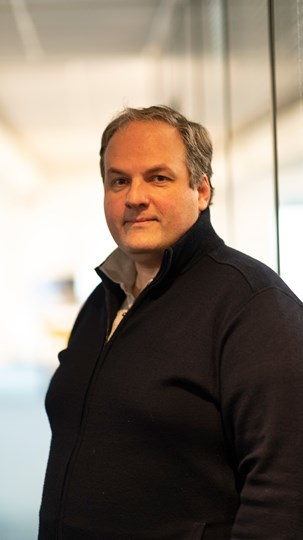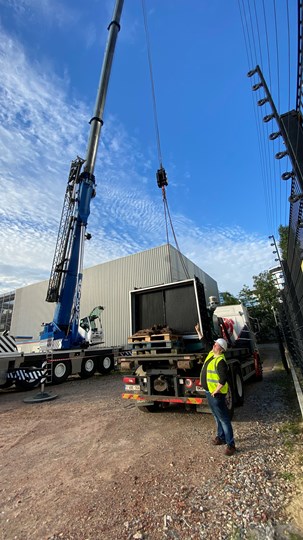LCL Brussels-North recently expanded its capacity by installing a new generator. This backup generator utilises HVO100, a renewable fuel, offering a sustainable alternative to traditional diesel. This is part of LCL’s continuous effort to make its emergency generators more environmentally friendly, as previously announced. The ultimate goal is for all generators across the five data centers to run on HVO100, a deliberate choice LCL was the first Belgian data center company to make. This project signifies yet another step towards a sustainable future.
The installation of the new generator at LCL Brussels-North is part of an expansion of capacity. The customer base is growing, and the required capacity is therefore increasing annually at all sites, indicative of LCL's ambitious growth. Abdellah Mahlous, LCL's Operations Manager, says, “It’s actually a process we're constantly monitoring. We know what's needed to keep everything running and continuously monitor remaining capacities. When the used capacity nears 80%, we gradually initiate projects to ensure that it remains sufficient. This applies not only to the generators but also to, for instance, UPS systems, batteries, cooling, etc. In the second half of 2023, it became apparent that it was the right time to add a fourth generator in Diegem.”


Consequently, a decision was made to opt for a generator capable of running on HVO100, although almost any new generator can do this. What IS a very conscious decision is to opt for HVO100, favouring sustainability despite higher costs. “Our choice for HVO100, both now and for the future, is a strategic but primarily a sustainable choice,” Abdellah notes. “Though HVO100 isn’t a novelty, its application within our industry is pioneering — no other Belgian data center has yet made this transition, so that’s where we make a difference. Others may follow, because it’s currently the only way to make diesel generators greener without replacing them.”
This development also aligns with the SBTi strategy for reducing CO2 emissions. Transitioning to plant-based and recycled oils advances our 2030 environmental objectives. This generator with HVO100 emits 40% less CO2. Future innovations are to be expected, but currently, there’s no suitable alternative for a data center. Our emergency generators, deployed only during outages and for monthly tests, are designed to operate independently for a minimum of 48 hours, which is not possible with any of the newer developments.

Like all projects, thorough preparation and a holistic view were essential. Daniel Fiorucci, the Critical Infrastructure Expert and project lead, managed challenges in project management and timing, alongside a number of technical aspects.
“Projects like this resemble a complex Lego set where every piece must align flawlessly. Each step needs timely coordination with all parties, and as we operate in a live environment that must remain fully functional, there’s no margin for error. Success depends on meticulous planning and risk assessment,” Daniel remarks. Additionally, the generator was installed under an existing green roof, necessitating its careful removal and subsequent restoration. Just like that, a project that might seem straightforward at first glance often turns out to be a complex technical and organisational feat.
Therefore, Abdellah believes it is important that LCL has the right people to organise these projects in its own workforce: “While collaborating with reliable partners is key, it’s reassuring to know we’re not completely dependent on them, thanks to our in-house expertise. These initiatives are crucial for LCL and, by extension, our clientele. Delivering sustainable solutions not only benefits us but also enhances our customers’ operations, ensuring we cater to their needs both now and moving forward. That remains our top priority.”
The upgrade to greener generators continues, not only because all new generators will run on HVO100 but also by exploring how the previously installed generators can be adapted for HVO100.
Read more about LCL's concious decision to use HVO100 here.